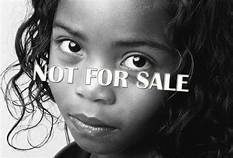Table of Contents
India is a country where women are considered as “Devi” and children are considered to be idols of innocence and hence are called as “Bache Mann Ke Sache”. In India women and children are given the love and respect, respect in such a way that they are being trafficked every year in a very large amount.
Those Devi i.e. girls and women are sold for the highest price. According to estimates, human trafficking in India may affect between 20 and 65 million people. Women and girls are trafficked within the country for commercial sexual exploitation and forced marriage, especially in those areas where the sex ratio is extremely skewed in favour of men. A significant number of children are subjected to forced labour as factory workers, domestic servants, beggars, and agriculture workers, while others have been used as child soldiers by insurgent or terrorist groups.
Human trafficking comes on the 3rd position following 1. Drugs and 2. Arms among the largest organized crimes. According to the National Crime Records Bureau (NCRB) figures, the state of Bihar ranked third just behind Rajasthan and West Bengal in 2017, when 362 boys and 33 girls below 18 years of age were rescued from the clutches of traffickers.
What is trafficking?
The trade of human being for exploitation. Exploitation can be any form either physically, mentally or sexually. These humans once get into this becomes the bonded and forced labour, for commercial purpose. Trafficking also includes organ trading where illegal organs are removed and sold. Another way of exploitation includes where the forceful and illegal migration of victims are done just for domestic help in households, small scale establishment in urban centres or even for begging or selling knick-knacks.
United nation called trafficking as any activity leading to recruitment, transportation, harbouring or receipt of persons using threat or use of force or a position of vulnerability.
Constitutional & legislative provisions associated with Trafficking in India:
- Trafficking in citizenry or Persons is prohibited under the Constitution of India under Article 23 (1)
- The Immoral Traffic (Prevention) Act, 1956 (ITPA) is the premier legislation for prevention of trafficking for commercial sexual exploitation.
- Criminal Law (Amendment) Act 2013 has enforced wherein Section 370 of the Indian penal code has been substituted with Section 370 and 370A IPC which give for comprehensive measures to counter the menace of human trafficking including trafficking of children for exploitation in any form including physical exploitation or any sort of sexual exploitation, slavery, servitude, or the forced removal of organs.
- Protection of Children from Sexual Offences (POCSO) Act, 2012, which has its effect from 14th November 2012 is a special law to safeguard children from sexual assault and exploitation. It provides precise definitions for various sorts of sexual assault, including penetrative and non-penetrative sexual abuse, harassment.
- There is other specific legislation enacted relating to trafficking in women and children Prohibition of Child Marriage Act, 2006, Bonded Labor System (Abolition) Act, 1976, Child Labor (Prohibition and Regulation) Act, 1986, Transplantation of Human Organs Act, 1994, aside from specific Sections within the IPC, e.g. Sections 372 and 373 dealing with selling and buying of girls for prostitution.
State Governments have also enacted specific legislation to deal with the issue. (e.g. The Punjab Prevention of Human Smuggling Act, 2012)
Measures were taken by the Government of India to Prevent and Combat Human Trafficking:
- Anti-Trafficking Cell (ATC): Anti-Trafficking Nodal Cell was found out within the Ministry of Home Affairs (MHA) (CS Division in 2006 to act as a focus for communicating various decisions and follow abreast of action taken by the State Governments to combat the crime of Human Trafficking. MHA conducts coordination meetings with the Nodal Officers of Anti Human Trafficking Units nominated altogether States/UTs periodically.
- Advisories: To enhance the effectiveness in tackling the crime of human trafficking and to extend the responsiveness of the enforcement machinery, MHA has issued following comprehensive advisories to all States/UTs.
- Ministry of Home Affairs’ scheme: Ministry of Home Affairs under a Comprehensive Scheme Strengthening enforcement response in India against Trafficking in Persons through Training and Capacity Building, has released fund for the establishment of Anti Human Trafficking Units for 270 districts of the country.
- Strengthening the capacity building: To reinforce the capacity building of enforcement agencies and generate awareness among them, various Training of Trainers (TOT) workshops on Combating Trafficking in Human Beings for Police officers and Prosecutors at Regional level, State level and District level were held throughout the country.
- Judicial Colloquium: To train and sensitize the trial court judicial officers, Judicial Colloquium on human trafficking are held at the High court level. The aim is to sensitize the judicial officers about the varied issues concerning human trafficking and to make sure speedy court process. So far, eleven Judicial Colloquiums have been held at Chandigarh, Delhi, Himachal Pradesh, Maharashtra, Chhattisgarh, Tamil Nadu, Andhra Pradesh, Bihar, Uttar Pradesh, Jharkhand and Odisha.
Conclusion
Trafficking is one of the most rampant crime in labour supply and developing country like India. The biggest issue is lack of knowledge and lack of awareness. The traffickers who supply and demand for the victims live in our surroundings and they look alike us, so it is very difficult to find them as they live amidst us.
Author: Priyanshi Bhardwaj,
Trinity Institute of Professional Studies/ 2nd year

